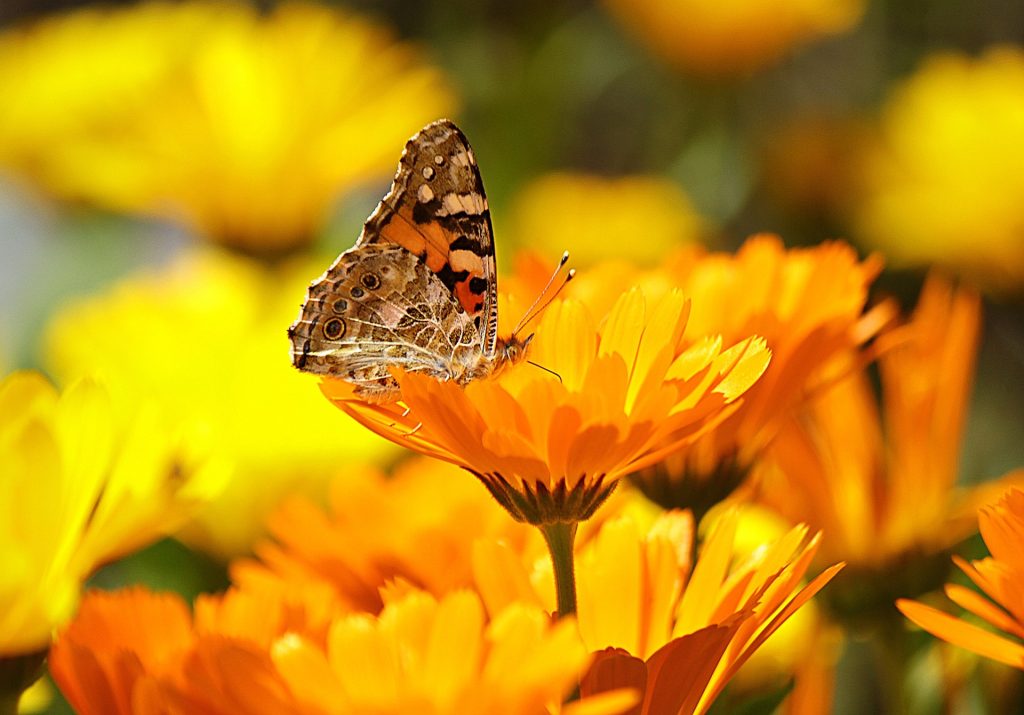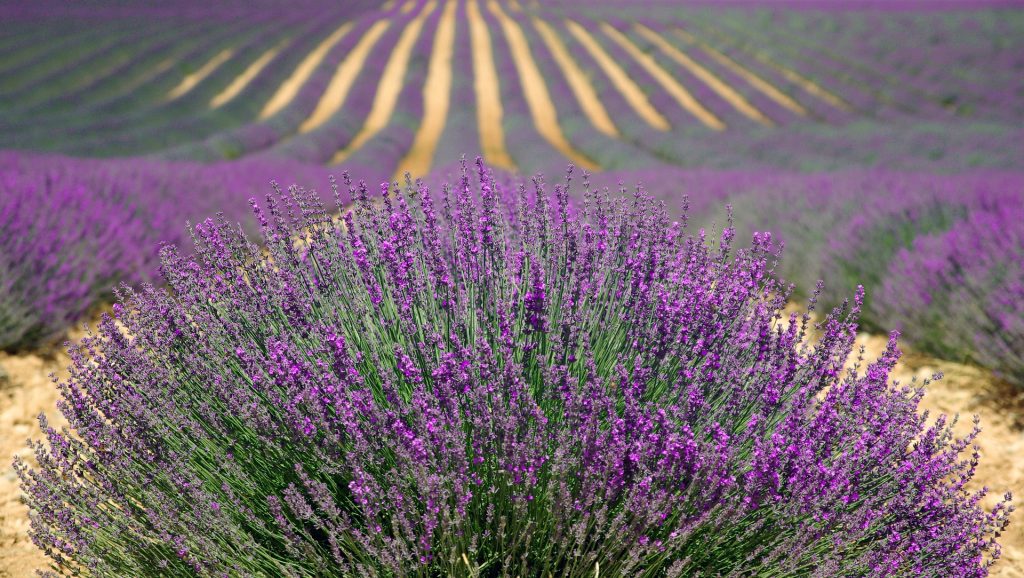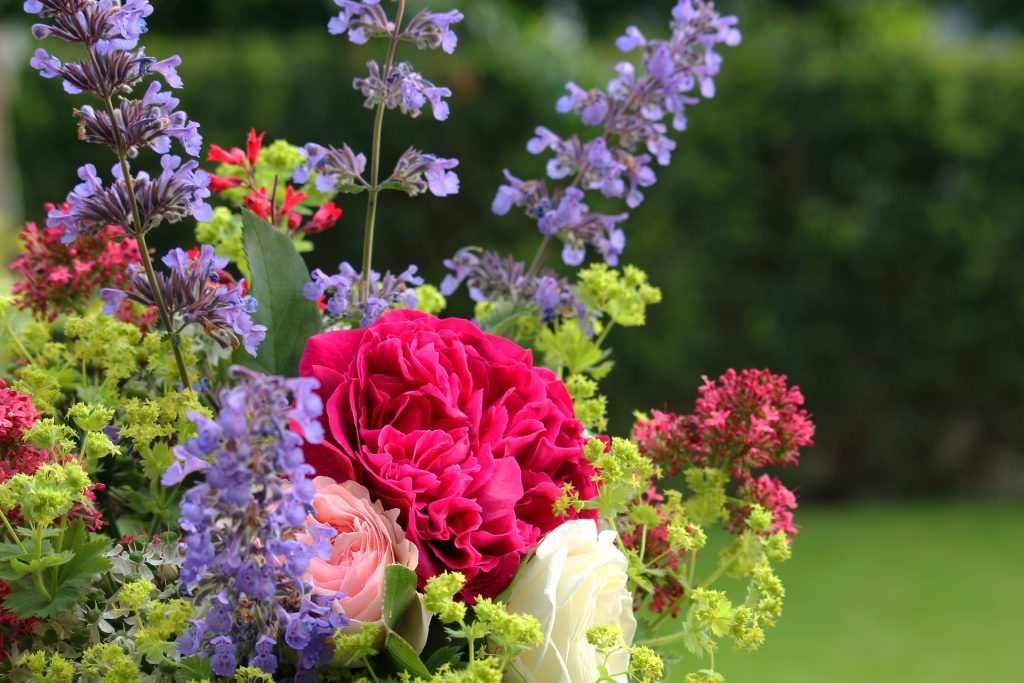Plant These Insect-Repelling Plants in Your Florida Garden, Chemical insecticides and their harmful environmental and health effects. For decades, chemical insecticides have been widely used to control pests in gardens and farms. While these products can be effective in killing unwanted insects, they also have negative consequences for the environment and human health. Chemical insecticides contain toxic substances that can contaminate soil, water, and air, leading to serious environmental problems. Exposure to these chemicals can also cause a range of health problems, from mild skin irritation to respiratory issues and even cancer.
Introduction to the solution: Using insect-repelling plants to deter pests naturally
Fortunately, there is a safer and more sustainable way to keep pests away from your garden. Insect-repelling plants are a natural and effective alternative to chemical insecticides. These plants contain natural compounds that repel insects without harming the environment or human health. By planting insect-repelling plants in your garden, you can create a natural barrier against pests while also adding beauty and fragrance to your outdoor space. We will explore the benefits of using insect-repelling plants and introduce you to some of the best options to grow in your Florida garden this spring.

Benefits of Using Insect-Repelling Plants in Your Garden
Environmentally-friendly alternative to chemical insecticides.
One of the main benefits of using insect-repelling plants in your garden is that they are an environmentally-friendly alternative to chemical insecticides. Chemical insecticides contain toxic substances that can harm beneficial insects, pollinators, and other animals in the ecosystem.
In contrast, insect-repelling plants work by emitting natural compounds that repel insects without causing harm to the environment. By planting insect-repelling plants, you can reduce the use of chemical insecticides and promote a healthier and more sustainable environment.
Health benefits of avoiding exposure to harmful chemicals.
Another benefit of using insect-repelling plants in your garden is that they can help you avoid exposure to harmful chemicals. Chemical insecticides have been linked to a range of health problems, from skin irritation and nausea to more serious issues like cancer and reproductive problems. By choosing to use natural insect-repelling plants, you can reduce your exposure to these harmful chemicals and protect the health of yourself and your family.
Aesthetic benefits of adding beauty and fragrance to your garden.
Plant These Insect-Repelling Plants in Your Florida Garden, In addition to their environmental and health benefits, insect-repelling plants also offer aesthetic benefits to your garden. Many insect-repelling plants are beautiful and fragrant, making them a great addition to any garden. For example, lavender is a popular insect-repelling plant that also has a beautiful purple color and a pleasant fragrance.
Marigolds are another popular choice for insect-repelling plants, and they come in a range of colors that can add vibrancy and beauty to your garden. By planting insect-repelling plants, you can create a more beautiful and enjoyable outdoor space while also keeping pests at bay.

Top Insect-Repelling Plants to Grow in Your Florida Garden
If you’re looking for natural ways to repel pests from your Florida garden, you’ll be happy to know that there are several insect-repelling plants that are well-suited to the climate and conditions of the Sunshine State. Here are five of the best insect-repelling plants to grow in your Florida garden this spring:
Lavender: Repels mosquitoes, flies, and moths.
Lavender is a beautiful and fragrant plant that is well-known for its insect-repelling properties. This plant emits a scent that mosquitoes, flies, and moths find unpleasant, making it an effective natural repellent.
In addition to its insect-repelling properties, lavender is also known for its calming effects, making it a great choice for a relaxing garden space. Lavender prefers well-drained soil and plenty of sunlight, so it’s important to plant it in a location that gets plenty of direct sunlight.
Marigolds: Repel aphids, mosquitoes, and other pests.
Marigolds are a popular choice for insect-repelling plants due to their ability to repel a wide range of pests, including aphids and mosquitoes. These plants emit a strong scent that pests find unappealing, making them an effective natural repellent.
Marigolds are also easy to grow and come in a range of colors, making them a great choice for adding color and vibrancy to your garden. These plants prefer well-drained soil and plenty of sunlight, but can tolerate some shade.
Citronella: Repels mosquitoes and other flying insects.
Citronella is a well-known insect-repelling plant that is often used in candles and sprays to repel mosquitoes and other flying insects. This plant emits a strong scent that masks the scent of humans and animals, making it difficult for mosquitoes and other pests to locate their prey.
Citronella is a tropical plant that thrives in warm and humid conditions, making it a great choice for a Florida garden. These plants prefer well-drained soil and plenty of sunlight, but can tolerate some shade.
Catnip: Repels mosquitoes, flies, and cockroaches.
Catnip is a member of the mint family that is known for its ability to repel a wide range of pests, including mosquitoes, flies, and cockroaches. This plant emits a scent that pests find unappealing, making it an effective natural repellent.
Catnip is easy to grow and prefers well-drained soil and plenty of sunlight, but can tolerate some shade. However, if you have cats, you should be aware that they may be attracted to the plant and may try to eat it.
Basil: Repels mosquitoes and flies.
Basil is a popular herb that is known for its insect-repelling properties. This plant emits a scent that mosquitoes and flies find unappealing, making it an effective natural repellent. Basil is also a versatile herb that can be used in cooking, making it a great choice for a functional garden.
Basil prefers well-drained soil and plenty of sunlight, but can tolerate some shade.
Plant These Insect-Repelling Plants in Your Florida Garden, By planting these insect-repelling plants in your Florida garden this spring, you can create a natural and effective barrier against pests while also adding beauty and fragrance to your outdoor space.

How to Grow and Care for Insect-Repelling Plants
Growing and caring for insect-repelling plants is easy and rewarding. By following these tips, you can ensure that your plants thrive and effectively repel pests from your Florida garden.
Choosing the right location and soil conditions.
Insect-repelling plants, like all plants, require the right growing conditions to thrive. Most of these plants prefer well-drained soil and plenty of sunlight, although some can tolerate partial shade. It’s important to choose a location that meets these conditions to ensure that your plants grow strong and healthy.
When it comes to soil, insect-repelling plants generally prefer soil that is rich in organic matter and well-drained. Before planting, you can amend your soil with compost or other organic matter to improve its quality. Be sure to choose a location that has good drainage to prevent waterlogged soil, which can lead to root rot and other problems.
Watering and fertilizing tips.
Watering is an important aspect of plant care, and insect-repelling plants are no exception. These plants generally prefer consistent moisture, but can be sensitive to overwatering. To ensure that your plants receive the right amount of water, it’s important to monitor the soil moisture level and water accordingly.
In addition to watering, fertilizing can also help your insect-repelling plants thrive. Organic fertilizers, such as compost or fish emulsion, can be applied during the growing season to provide the nutrients that your plants need. Be sure to follow the instructions on the fertilizer package to avoid over-fertilizing, which can lead to plant stress and other problems.
Maintenance and pruning guidelines.
Regular maintenance and pruning can help your insect-repelling plants stay healthy and attractive. Deadheading, or removing spent flowers, can encourage your plants to produce more blooms and can prevent them from going to seed. Pruning can also help to keep your plants compact and bushy, which can improve their appearance and overall health.
When pruning, be sure to use clean, sharp tools and make clean cuts to prevent damage to the plant. It’s also important to avoid pruning more than one-third of the plant at a time, as this can stress the plant and lead to reduced growth and flowering.
In conclusion, growing and caring for insect-repelling plants is an easy and effective way to naturally deter pests from your Florida garden. By choosing the right location and soil conditions, providing consistent watering and fertilizing, and practicing regular maintenance and pruning, you can ensure that your plants thrive and add beauty and fragrance to your outdoor space.
Insect-repelling plants are a great alternative to chemical insecticides for deterring pests from your Florida garden. By using these plants, you can enjoy a beautiful and healthy outdoor space without exposing yourself or the environment to harmful chemicals.
In this article, we discussed the benefits of using insect-repelling plants, including their environmentally-friendly nature, health benefits, and aesthetic value. We also highlighted some of the top insect-repelling plants to grow in your Florida garden, including lavender, marigolds, citronella, catnip, and basil.
To ensure that your insect-repelling plants thrive, we provided tips for growing and caring for them, including choosing the right location and soil conditions, watering and fertilizing, and regular maintenance and pruning.
As you plan your spring gardening, we encourage you to consider incorporating insect-repelling plants into your garden. By doing so, you can not only keep pests at bay but also create a beautiful and sustainable outdoor space.
Plant These Insect-Repelling Plants in Your Florida Garden, natural pest control is essential for promoting a healthy and sustainable environment. You are taking an important step toward achieving this goal by choosing to use insect-repelling plants in your garden. So, let’s get planting and enjoy the benefits of a beautiful and pest-free garden!